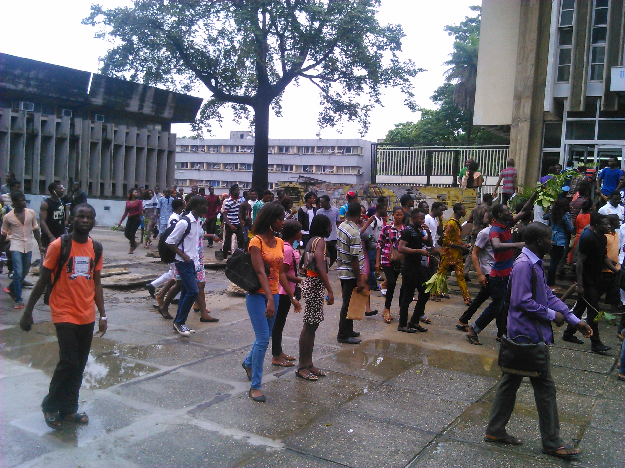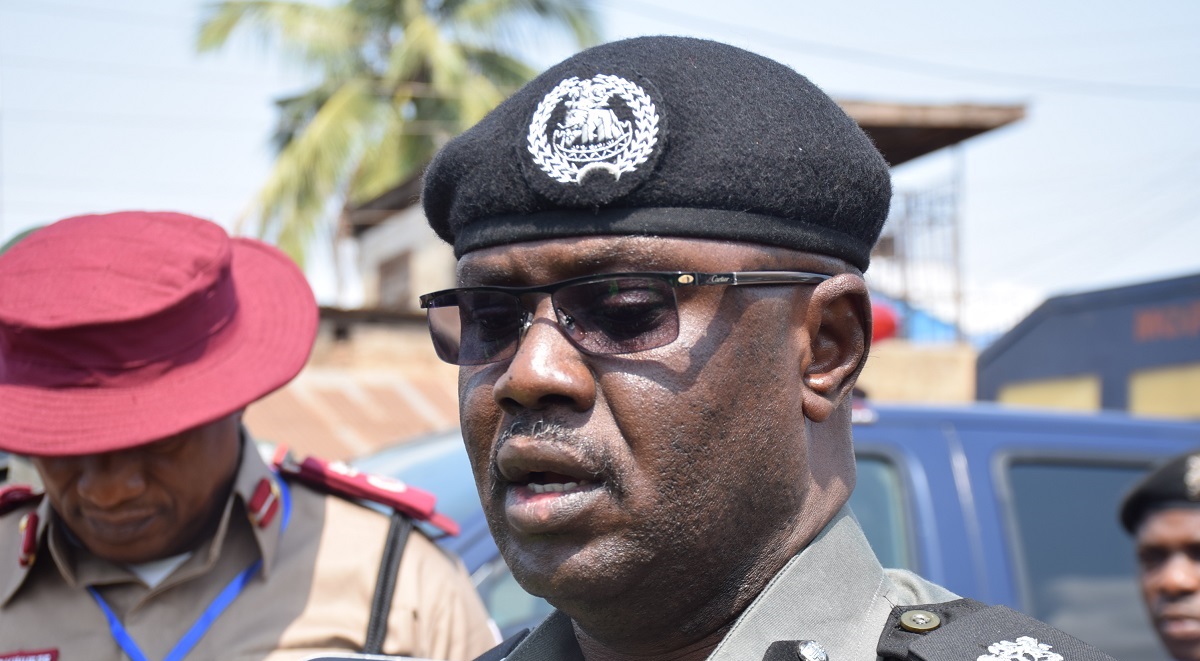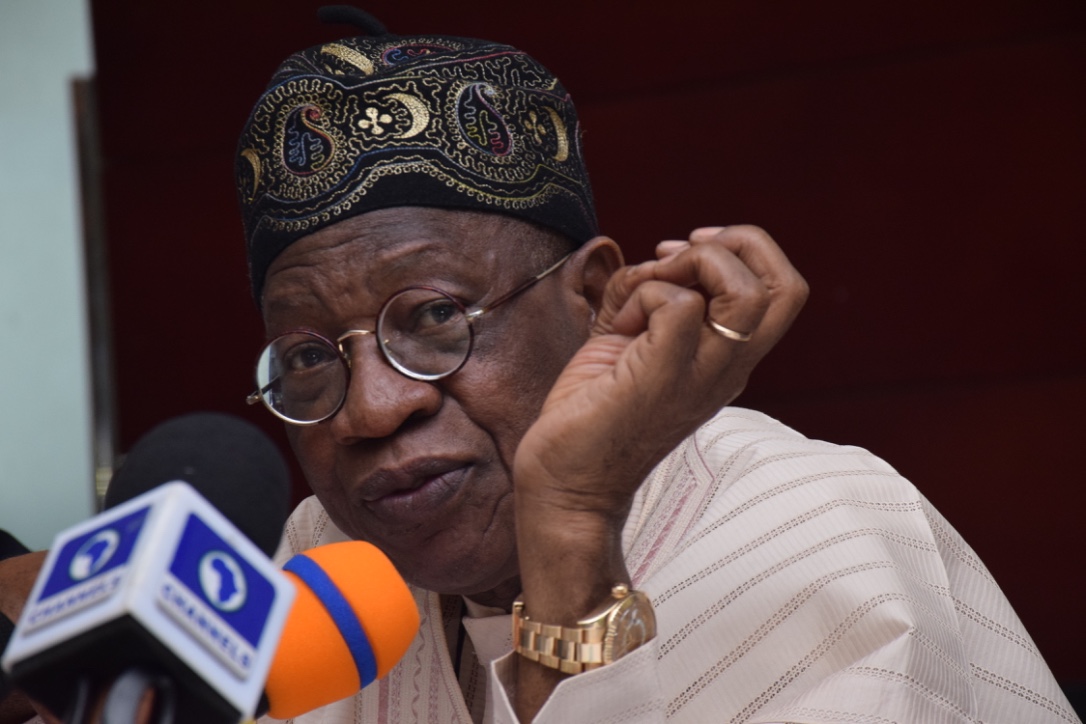Fassy Yusuf, a lecturer at the University of Lagos, has asked Precious Okhimamhe, a social media user, to provide evidence of sex-for-grades allegation she levelled against him.
In the heat of a BBC documentary exposing randy lecturers at the University of Lagos, many had taken to Twitter to share their experiences.
Tweeting via the handle @pretyprexy, Ohkimamhe had said a friend of hers listed Yusuf as a randy lecturer.
“A friend of mine who graduated from Unilag just told me some names. Dr Fassy Yusuf . . . Your time is coming. #SexForGrades,’” she had written in the tweet which went viral.
Advertisement
But in a letter dated October 9, Yusuf gave Okhimamhe seven days to prove this allegation of face legal action.
“In the last forty or so hours, I have been inundated with phone calls, messages and visits in respect to a libellous, scandalous and disparaging statement you posted on your Twitter handle on Monday, 07 October 2019 at about 1.13p.m and circulated globally,” the letter read.
“As a lawyer, a former public officer, a notary public, a justice of the peace, a community and religious leader, an international scholar and professional, a newspaper columnist, a social crusader, a businessman, among others, your reckless, irresponsible, disconcerting, scandalous and libellous post has lowered and continues to lower my person in the estimation of right-thinking members of the society, especially among my clients, friends, colleagues, associates mentees and students; has caused and is causing me to be shunned, and avoided; and it has exposed and continues to expose me to odium, hatred, contempt and ridicule. Indeed, your false statement cum post has conveyed an imputation on me, disparaged and injured me in my office, profession, calling, business, etc.
Advertisement
“Elementary law requires that “he/she who asserts, must prove”; the onus is therefore, on you to prove and justify the libel against me.
“Consequently, I HEREBY GIVE YOU SEVEN (7) DAYS’ NOTICE TO PROVE AND OR JUSTIFY YOUR LIBEL against me failing which I shall be constrained to institute legal action for the purposes of making you face the consequences of your irresponsible action, restoring my dignity, and claiming damages thereof.”
Okhimamhe, however, has taken down the tweet.
Boniface Igebeneghu and Samuel Oladipo, two of the lecturers indicted in the BBC documentary have been suspended while UNILAG has set up a panel to probe their actions.
Advertisement
1 comments








Whilst it is okay to discuss what the BBC Eye documentary regarding “Sex-for-Grades” in the Nigerian University system has revealed, which is not new for those of us that passed through the Nigerian University system, it is equally important to focus on the solution, particularly the low-hanging fruits’ solutions. Some of the solutions, in my opinion, that would help in some ways are highlighted below:
• It is strange that in our educational system, including universities, polytechnics, colleges of education, secondary schools and primary schools, there are no effective whistle-blowing programmes/mechanisms (hotlines) that would allow students to anonymously and/or confidentially report bad behaviours by lecturers/teachers and non-academic staff. So, as a matter of urgency, the various ministries of education (Federal, State and Local Government levels) or any other organ strategically situated within the educational system should enforce a mandatory whistle-blowing programme backed with proper policy and hotlines. It is important for the whistle-blowing programme for each institution to include an external hotline, which can be located under an independent body created for this purpose or to a department under the Ministry of Education at the Federal level, as well as of each State and Local Government. The independent body so created or the department responsible for managing the external hotlines must be manned by professionals who have competencies in hotline management and investigation;
• The Sexual Harassment Prevention Bill currently being reconsidered by the 9th Assembly should incorporate mandatory whistle-blowing programme by all educational institution in Nigeria, and not just the universities. Whilst the five year jail term being recommended is commendable, it is equally important that programmes that will act as first-line-of-defence, including whistle-blowing programmes with both internal and external hotline options be incorporated into the Bill;
• It is important that interactions between students and lecturers/teachers be minimised, particularly with regard to submission of assignments. For example, while I was studying for my Master’s Programme in the United Kingdom, all assignments were submitted to the General/Administrative office and not to the individual lecturers who gave those assignments. Another important step would be to introduce a coding system to examination scripts with total elimination of insertion of students’ names in examination scripts. In fact, lecturers/teachers should not be aware of what script belong to a particular student/pupil. If possible, registration/matriculation numbers should be avoided as most lecturers/teachers would already be in possession of students’ registration/matriculation numbers. As a way of suggestion, an examination number system can be adopted for each semester/session, which should be managed by the Administrative staff. As part of the internal policy of each institution, it should be stated clearly that where a non-academic staff is found to have colluded with an academic staff to reveal the identity of any student/pupil with a particular examination number, that non-academic staff shall be taken through the institution’s disciplinary process and the penalty for the non-academic staff if found culpable would be dismissal; and
• It is imperative that every school in Nigeria is mandated to introduce, re-introduce or reinforce its Guidance and Counselling department, which should be manned by qualified persons to ensure that students who have been sexually harassed or abused have qualified persons to speak with, to manage any post-traumatic stress/disorder.